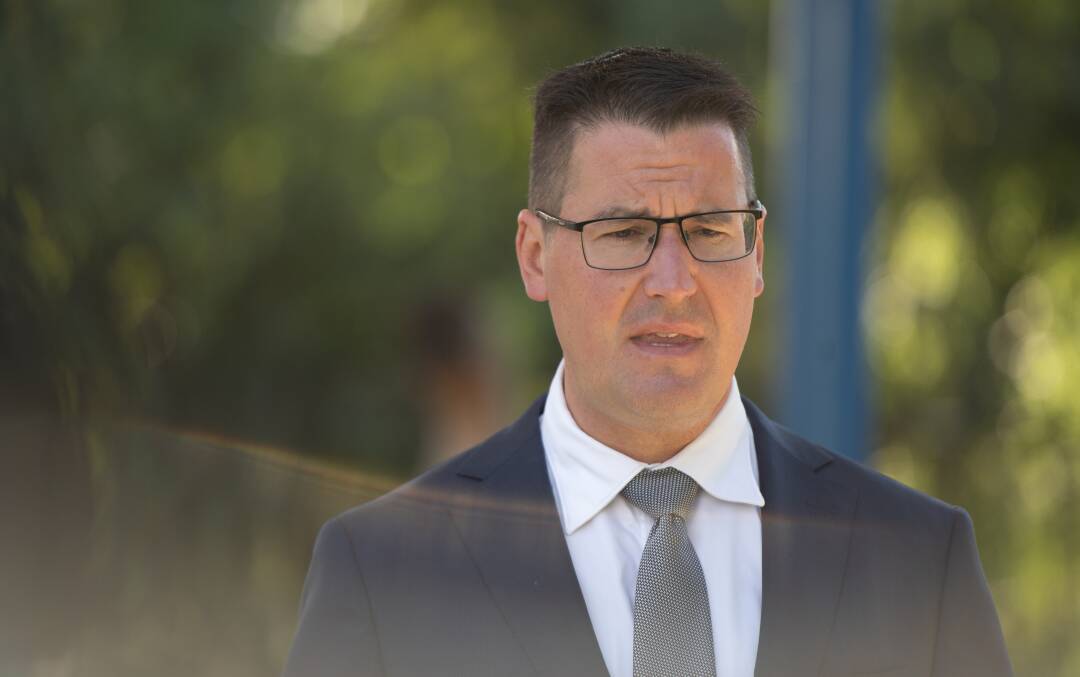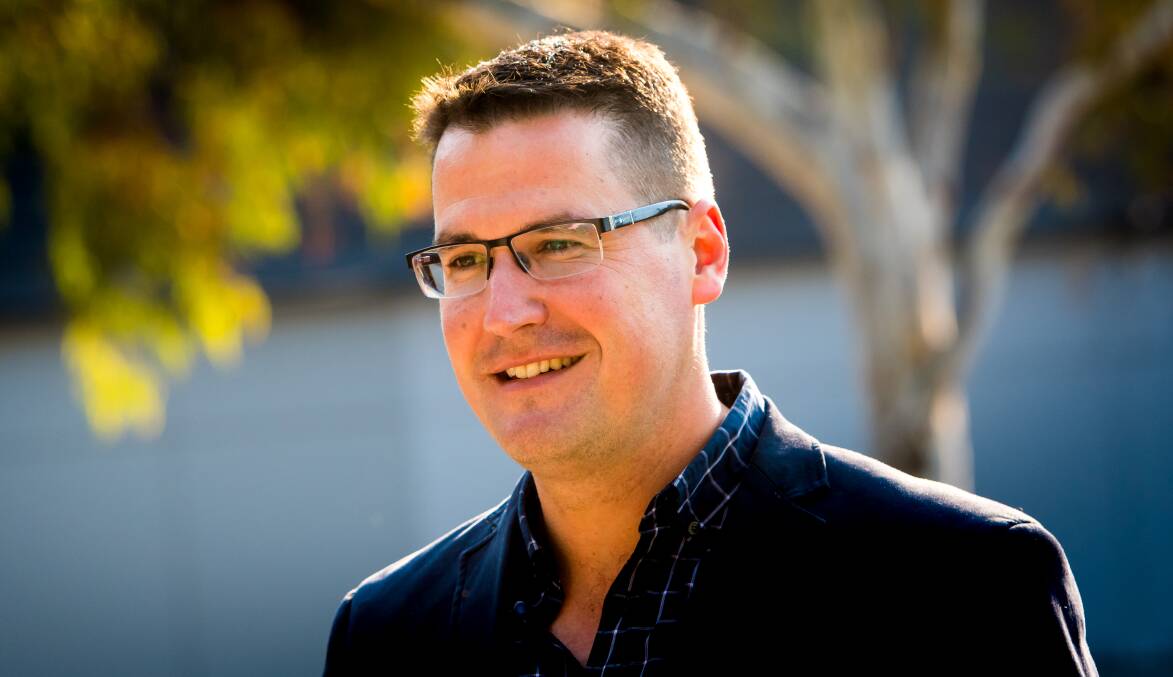
Former ACT Liberal senator Zed Seselja has admitted to feeling a sense of dread going into the federal election that ended his near-decade career in parliament.
In his first media interview since losing his Senate seat to independent David Pocock, Mr Seselja also said a visit from Coalition-era foreign minister Marise Payne would not have stopped Solomon Islands making a security pact with China, and agreed that China was becoming more aggressive, interventionist and "cunning".
The former senator, speaking to Sky News, said he believed voters had formed their view of the Morrison government largely before the election.
"I certainly had a deep sense of dread going in," he said.
"Going for a fourth term is not easy.
"You always hope."
When asked by Sky News whether the election loss hurt, Mr Seselja said: "Yeah of course. There's a level of rejection."
However Mr Seselja, who was closely aligned to then-defence minister and future leadership aspirant Peter Dutton, said the Coalition never contemplated ousting Scott Morrison as prime minister despite the government's deteriorating position ahead of the poll.
"I believe it was a mistake for the Labor party when they replaced Kevin Rudd in the first term, notwithstanding all of the issues," Mr Seselja said.
"When you come into government, there's a sort of pick and stick, you stick with the leader, and I think that was the right thing to do. I don't think it was ever really in contemplation to be changing leaders six months out from the election."
Mr Seselja was a supporter of Mr Dutton's failed bid in 2018 to topple Malcolm Turnbull as prime minister.
The then-ACT senator's primary vote in the 2022 election crashed below 25 per cent, well short of what was needed to hold off Senator Pocock and a strong tide of preferences which flowed to him from the Greens and fellow independent Kim Rubenstein.
Leaked internal research suggested Mr Seselja was in danger of losing his seat even before Senator Pocock entered the election race.

The former ACT senator, who entered Federal Parliament in 2013 after serving as Liberal leader in the ACT Legislative Assembly, said among the multiple factors that led to the Coalition's election loss was a view in the electorate that the government's vaccine roll out had been too slow.
"There was a feeling and certainly a narrative that took hold that we weren't getting it done quickly enough," he said.
Mr Seselja questioned whether the government should have listened to its medical advisory body in limiting AstraZeneca vaccines to older age groups.
"I think that really set things back, considerably at the time. I think there's a question mark over whether we should have accepted that advice because I think AstraZeneca is a safe vaccine. I think it's proven to be a very effective vaccine, but you're in a difficult spot," he told Sky News.
The former Coalition minister defended national cabinet, one of Mr Morrison's signature reforms in response to COVID, but admitted it became a burden for the then-government.
"The national cabinet was a correct and heroic response at the time for the country. I think it then became a bit of an albatross," Mr Seselja said.
"There was a feeling perhaps among some of our people that we didn't stand up to the premiers."
Mr Seselja also said an "impression was created" that Mr Morrison did not listen to women's concerns around their safety within Parliament House.
"The issues that emerged in this building were very distressing, very concerning," he said.
'Not a shred of difference'
The Morrison government minister for International Development and the Pacific said it remained to be seen whether Solomon Islands Prime Minister Manasseh Sogavare would allow a Chinese military base on its shores after forming a security deal with China.
"He's made those assurances when we were in government," Mr Seselja said.
The Coalition government sent Mr Seselja to talk with Mr Sogavare about the pact after it was revealed during the election campaign, drawing criticism from Labor that a more senior figure should have been tasked with handling the diplomatic and strategic headache.
When Sky News put to Mr Seselja that he thought Solomon Islands' government was "screwing" Australia on his visit, the former minister agreed: "A little bit," he said.
He also agreed in the interview that China was becoming more interventionist, aggressive and "cunning".
Mr Seselja defended the Coalition's handling of Australia's relationship with Solomon Islands, saying that despite criticism that then-foreign minister Marise Payne should have visited the Pacific nation, it would not have changed the result. He said Mr Morrison was right not to fly to Honiara during the election campaign.
"I don't think it would have made a shred of difference if Marise had been on the plane, or I was on the plane going there, I think that the deal was done."
He also revealed that Mr Sogavare was direct in his language during his meeting with the Solomons prime minister about the security pact.
"I think he would have gotten a very clear message from me as to as to how the Australian government felt," Mr Seselja said.
"I think he may have used language, I wouldn't go into all the detailed language, but I think after I delivered my opening spiel, he may have used language I haven't heard quite said in such a direct way.
"Obviously, it was a very challenging discussion.
"I don't know whether I would have been a good diplomat, if I'd gone down another career. But certainly being frank in these discussions is important."
Mr Seselja said he told Mr Sogavare that Solomon Islands' security pact with China did not have broad support in the region, was not supported by Australia, and did not reflect Australia's support for the Pacific nation during civil unrest.
Mr Seselja also said he was not aware of the security pact before it was leaked and made public.







